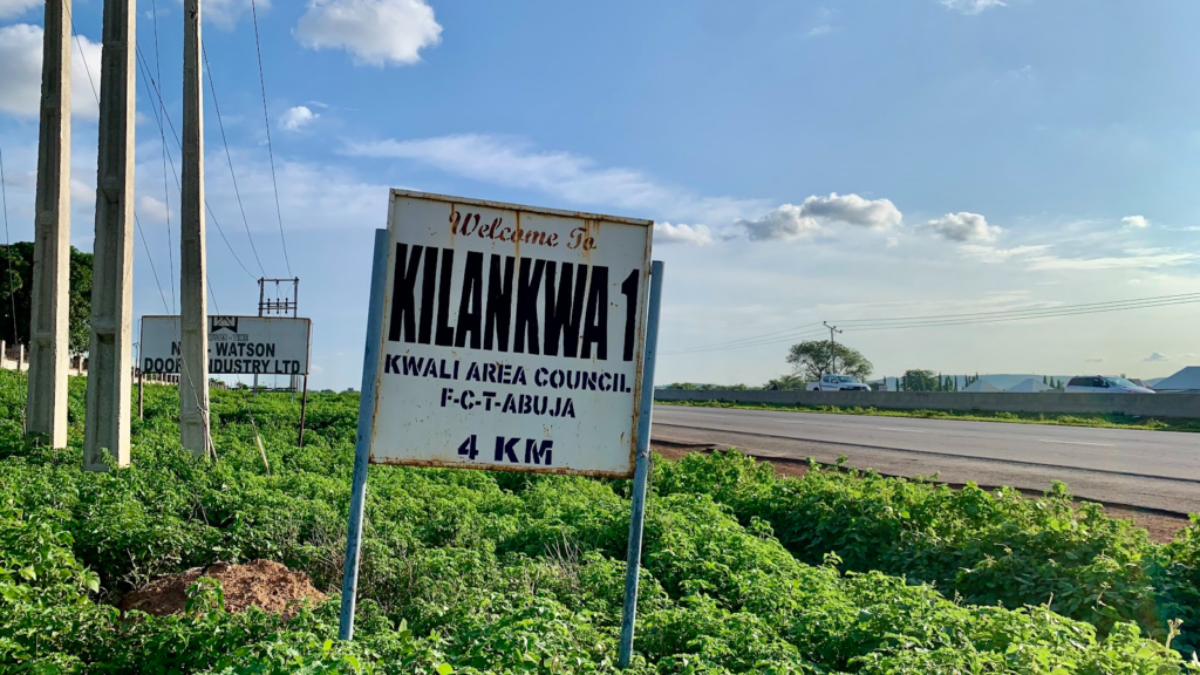
One sweaty Friday afternoon in Lagos, 22-year-old Adunni punched in a number she had never dialled and stewed in rage, waiting for a voice to come alive on the other end. She had a lot to let off her chest, but her call went unanswered three times. The person at the other end of the phone finally picked up on her fourth try, but Adunni’s rage had grown so much that she had one question: “What are you doing?”
The genesis
The thing is, Adunni has never really cared about governance and its issues or lost sleep over the theatrics of Nigeria’s politicians and their audacious corruption. She hasn’t lived long enough to expend energy on this anyway—she just graduated from university and is starting out her life working as a virtual assistant and a social media manager.
So, dialling the number registered to Ganiyu Ayuba (a lawmaker representing Alimosho constituency in the House of Representatives) was out of character for her, and so was the intentional process of finding it. Adunni’s question may have consisted only of four words, but it was packed full of rage and questions that led her to seek out Ayuba’s phone number in the first place. About four days after she made the call, Adunni shared with me the events that led to her breaking point.
Senator Akpoti-Uduaghan and a podcast
On Friday, February 28, Natasha Akpoti-Uduaghan, a Nigerian lawmaker representing Kogi Central at the Senate, alleged the Senate President, Godswill Akpabio, had sexually harassed her. On March 5, she came forward to the Senate with a petition. What followed the Senator’s complaint was bullying and punishments, the kind that reminded Adunni of what she had gone through years ago in junior secondary school.
A boy had sexually harassed Adunni, and as Akpoti-Uduaghan has recently done, she also reported the harassment to an authority (teacher), who, like the Senators, decided to punish her instead.
“The teacher literally punished me from 12 pm to 6 pm,” Adunni recalled. “ She only released me when it was time for her to go home. Do you understand?” she asked me.
Like Adunni and Akpoti-Uduaghan, many women who experience sexual harassment and other forms of Gender-Based abuse rarely ever see their abusers brought to justice. As of 2023, the Federal Ministry of Women Affairs said it recorded 27,698 cases (1,145 of them were fatal) of Sexual and Gender-Based Violence between 2020 and 2023. Out of that number, only 393 perpetrators were convicted– a meagre 1.4 per cent.
Because Nigeria is still deeply patriarchal, women are often blamed and shamed when they report sexual abuse. In fact, in many cases where teenagers get pregnant by abuse, they are made to marry their abuser to avert the shame.
Though it may have happened years ago, Adunni never forgot the teacher who punished her. But she somehow learnt to function through life without getting justice. Seeing Akpoti-Uduaghan go through a similar experience triggered whatever calm she had managed to achieve. Then she listened to an episode of the ‘I Said What I Said’ podcast and felt like bursting.
That episode of the fan-favourite Podcast featured the hosts, Jola Ayeye and Feyikemi ‘FK’ Abudu, in addition to a guest, Adesuwa Giwa-Osagie, a vocal National Assembly correspondent who had extensively followed the drama unfolding at the parliament from the beginning.
Adunni found it impossible to remain calm after she listened to the three women’s discussions on the podcast.
“FK said we only think these people (politicians) are above us because we don’t challenge them when, in reality, they actually fear us because we voted them into their position,” Adunni recalled. She also remembered being teleported to a similar episode of the podcast during the #EndSars protests of 2020, encouraging listeners to demand accountability from their representatives. “They spoke about the US and the UK, where you can call mayors and speak to them without fear,” she said, explaining that she didn’t think much of it at the time because she was hardly interested in politics and governance issues as she was now.
And so Adunni made up her mind. She would call the lawmaker representing her constituency at the National Assembly to ask what he was doing to speak up against the injustice meted out to Senator Natasha Akpoti-Uduaghan.
“How may I help you?”
On Friday, March 13, Adunni searched the internet and found Ganiyu Ayuba’s number on the National Assembly’s official website. At first, she wanted to ask him about his stand on Senator Akpoti-Uduaghan’s situation, but this changed after her call went unanswered the first and second time. By the time it got to the fourth, Adunni was almost losing it. Then, the other end of the phone finally came alive, followed by the listless voice: “Hello, and how may I help you?”
Adunni said her name and asked the voice, “What are you doing?” The voice wanted to know what she meant, so Adunni asked about the actions her representative was taking on the Akpoti-Uduaghan case.
Although it wasn’t part of her initial questions, in the time that she stewed in anger, waiting for her call to be answered, Adunni remembered that parts of the Alimosho constituency had horrid smells — not pungent enough to turn your stomach but strong enough it sags your mouth full of saliva so thick, your throat sends it away when you attempt to swallow.
So she also asked the lawmaker what they were doing about the smell, and to her questions, the voice, indifferent, said, “We are sorry about that. We will look into it,” addressing no question in particular. Adunni replied that she would call back again and expects to hear a more positive response to her enquiry.
“This is a wrong number.”
The next day, Adunni called the number, and, like the first time, it rang endlessly without an answer. This time, she was ignored until she gave up and moved on with her day.
A while later, she saw she had missed a call from the number, so she called back. A male voice answered — the voice from the previous day belonged to a female (whom she assumes is her lawmaker’s assistant).
She asked, “Am I on to the assistant of the lawmaker representing Alimosho in the House of Reps?”
This was more of a conversation starter than a question, so she was taken aback by the response she got: “This is not the House of Reps; this is a wrong number.”
Adunni knew it couldn’t have been a wrong number. She had copied it from the National Assembly’s website, and she told the person this much, but he insisted so she let it go.
Adunni returned to the website to confirm, and yes, she wasn’t crazy; it was the exact number she had dialled the previous day.
When she called the number again, it rang without an answer.
“They don’t feel accountable to us.”
The last exchange made Adunni angrier than she was the first time she called. More than anything, she was upset that there was no sense of accountability from her representative and his staff. “You must clearly think I’m a joke,” she remembered muttering to herself in anger.
Unfortunately, this experience is not peculiar to Adunni. Many Nigerians have complained about their inability to reach public officials.
In 2024, young Nigerians on X (formerly known as Twitter) complained they could not reach former Minister of Youth Development Jamila Bio Ibrahim because she locked her account on the platform and made herself inaccessible elsewhere.
It’s the same story with emergency response numbers: Nigerians complain their calls are either ignored or cut off when they try to use them.
“We give these people (government officials) too much leverage,” Adunni said, explaining the lack of accountability across different levels of government.
“We’ve seen them as gods, and that is probably why we are scared of them.,” she told me.
Several Nigerians have also made this connection. Once, as he gave a speech at a public event, controversial politician and former governor of Rivers State, Rotimi Amaechi, said Nigerian politicians get away with corruption because the citizenry allows it.
“Even if you come to a Nigerian’s house and kill his mother, his father will continue his life,” Amaechi said.
How can Nigerians make politicians more accountable?
Adunni thinks the solution to this problem is to communicate with elected government officials at all levels as often as possible.
“One thing I wish more Nigerians would do is to call these people (politicians),” she said.
“One of three things will happen: they will either take their number away from (official) websites, disable the numbers, or pick up,” she continued, emphasising it should be a coordinated effort.
“They’ve called us fools for so long we’ve actually adapted to the name fools,” she said.
Are there other ways to make elected officials more accountable?
You can do either of the following:
- Take Adunni’s advice and contact your representative at the local, state, or national level. You can find all of their contacts here.
- Consistently demand answers to the worrisome decisions they take.
- Highlight and talk about any questionable thing on social media using hashtags.
- Diligently follow the news to find out what they’re up to.




